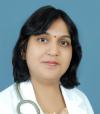How To Determine Ovulating Days Inspite Of Trying To Conceive?

 Thu, 7 Aug 2014
Answered on
Thu, 7 Aug 2014
Answered on
 Thu, 28 Aug 2014
Last reviewed on
Thu, 28 Aug 2014
Last reviewed on
I am 26 yrs old women .
I have irregular periods but I got my periods yesterday.
so considering that when would I ovulate.
as we are planning for a baby.
can u please tell me the best date when i can have relationship with my partner.
method to calculate fertile period mentioned
Detailed Answer:
Hello XXXXXX and welcome to HCM,
I understand that you have irregular periods.
I will first explain to you a bit about the menstrual cycle.
Normally in women with regular 28-30 days cycle there is a fine balance between different hormones in the body called FSH, LH, Insulin, TSH, Estrogen, Progesterone and so on. The levels of these hormones fluctuate during different days of the cycle. These minor fluctuations are extremely important and they follow a specific pattern or rhythm. If this rhythm is correct then one female egg begins to develop in one of the two ovaries that are situated on either side of the uterus. It takes about 14 days for this egg to develop and get released. This process may vary by a day or two in a women with regular cycles. So we count the fertile days from usually day 12-18 in women with 28 days cycle as these are the days when ovulation is likely to occur.
In women with irregular cycles this process may not happen or may be delayed. The reason for irregular cycles may be imbalance in hormones that are mentioned above or stress or cysts in the ovaries. Hence in such women it is not possible to predict ovulation days based on menstrual history. They may not be ovulating regularly or in some cases ovulation may be entirely absent. Hence it is better to use other tools like basal body temperature, ovulation detecting kits or ultrasound to look for ovulation.
Another crude method in women with irregular periods is
Keep a record of exact period dates and duration for 6 months. Subtract 18 days from the shortest period cycle to get the first day of your likely fertile period. Say if the shortest interval between periods period was 28 days, subtract 18 and get 10.
Take the longest interval, and subtract 11 days to get the last fertile day. For example, if the longest interval between periods was 41 days, subtract 11 and get 30. So the fertile period ranges from day 10-30 and ovulation may occur on any of these days. So an alternate day sexual contact on these days is advised to maximise the chances of conception. However in most women with irregular cycles ovulation does not occur. The best way to know this is by ultrasound.
So I suggest that you get an ultrasound of the pelvis, blood tests to detect hormonal abnormalities and an ovulation study to look for ovulation.
These will help you achieve the best result.
All my best wishes are with you.
Hope this satisfies your query.
Thanks for using HCM.
Feel free to ask any more questions that you may have.
Dr Madhuri Bagde
Consultant Obstetrician and Gynecologist
Answered by

Get personalised answers from verified doctor in minutes across 80+ specialties



